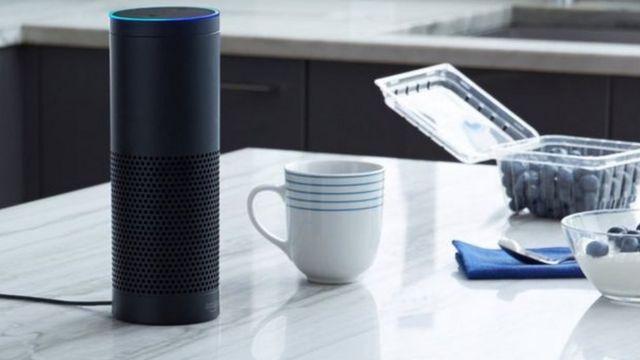How did smart home appliances spy on their owners?
Throughout two months early this year, the journalist specialized in technology "Kashmir Hill" allowed simple home appliances to spy on it.
The journalist had turned her small room apartment into a "smart house", and began to measure the amount of information that the manufacturers of these devices collect these devices.
Betrayal began from the smart toothbrush that exposed her when she neglected to clean her teeth, and that the TV set revealed that it had spent a full day immersed in watching programs, while the smart audio communication (or smartphone) was connected daily to Amazon, the largest in the world for sale in retail viaInternet.
The period that she lived in this way describes as it was similar to "living in a commercial monitoring state, during which electronic devices were not silent for one hour.".
Kashmir, the editor of the "Gizmodo" website, which specializes in technology news, spoke about her experience in one of the discussions sponsored by the TED Foundation.
تخطى مواضيع قد تهمك وواصل القراءةمواضيع قد تهمكTopics that may interest you end
Her colleague, Soria Matto, prepared a ROUTER router specifically to monitor the devices that listen to her life.The two concluded that the devices were revealing a lot of information about their life.
"(Smart Voice Communication), Amazon Eco, was connected to Amazon's servers every three minutes, while the TV was sending information about all the programs that we were watching through the Holo TV service, which in turn provides information to data brokers.".
However, the source of the greatest anxiety was not the size of the information that was transferred, but rather the size of the information that the owner of the house cannot track.
"As for other data, I don't know where it was circulated in the end," Kashmir says..
During the past few weeks, the issue of the absence of transparency has occupied the fate of the huge amount of user information and data that smart devices and social networks receive the world's attention and has received a great focus.
And the Facebook social networking site is still subject to severe auditing after the disclosure of the marketing company "Cambridge Analytica" obtaining information on up to 87 million users, without their knowledge.
تخطى البودكاست وواصل القراءةالبودكاستمراهقتي (Morahakaty)Teenage taps, from the presentation of a dignity as a vehicle and prepared by Mays Baqi.
Episodes

Podcast End
But while some users are preparing to overlook the easy access to their data through free services such as Google and Facebook, Kashmir feels that this is wrong, through their experience with smart devices.
"My smart house was not comfortable.The devices were not feasible, as the smart coffee setting device was very bad, and the Alexa audio device did not understand us.What I extracted (from experience) is that the barter of privacy does not deserve this..
The light may be shed on Facebook at the present time, but it was not the first to be monitored to harm user data..
In 2017, Vizio, manufacturer of smart TVs, prompted 2.2 million dollars to settle a case filed by the Federal Trade Agency in the United States, after accusing the company of installing a program to collect information about what is viewed in 11 million devices, without the knowledge or approval of users..
In addition to this, the company collected internet data for its devices, as well as the points of access to the wireless internet (Wi -Fi) and the postal code.Vizio traded this information with other companies to target users with specially designed ads.
In August 2016, there was a prominent example of the misuse of data, when hackers at the Dave Con Security Conference revealed that the Wib-Feb PC, produced by Standard Inoven, was transferring user data to the company while he was used to use.
"It is interesting that the issue is currently centered on Facebook, but it is much larger and broader than this," Kashmir says about this..
"We use platforms via our smartphones and social networks that provide us with applications from a third party and we have not yet been able to know the terms of this or the limits of companies' responsibility for these applications and their work to keep our data safe.".
It is expected that all of this will change soon in Europe with the approval of the European Parliament, the law regulating the protection of general information, which is considered to be more controlled by their data..
As for the situation in the United States, it is completely different, as citizens do not have the right to see the information that companies obtain about them.
But the state of California, the headquarters of the majority of major technology companies, is currently studying a law that will allow users to view their data and enable them to request not to sell them.
As for the Kashmir journalist, the changes in Europe will not happen soon enough.
But until this happens, it is not ready to completely abandon the experience of living in a smart house.
"We will keep the Eco and smart TV.I do not love them fully, but they will remain in our house..
"My hope is to make products in the future...Smart devices equipped with guarantees to protect privacy ".










